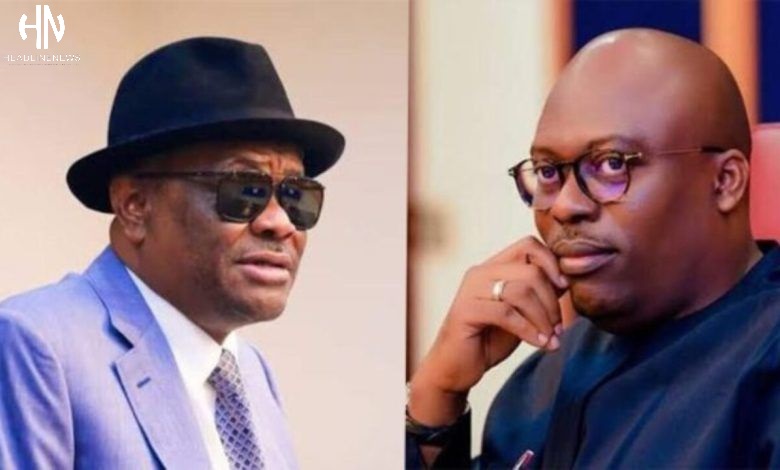The Minister of the Federal Capital Territory (FCT), Nyesom Wike, has officially flagged off Lot 1 of a 198-kilometre water pipeline project aimed at delivering potable water to residents of Bwari Area Council and its surrounding communities.

The event, held on Wednesday, 2025, was notable not only for the infrastructure milestone but also for the presence of the suspended Governor of Rivers State, Siminalayi Fubara. His attendance is widely interpreted as a public sign of reconciliation between the governor and his predecessor, Wike, following their months-long political feud. Their reunion, observers note, came after the intervention of President Bola Ahmed Tinubu.

Tinubu’s Promise to Abuja Residents
Speaking during the project unveiling, Wike stressed that President Tinubu had demonstrated his commitment to fulfilling campaign and governance pledges by prioritising access to clean water for Abuja residents.

“One thing you must give to Mr President is that, when he makes his promises, he always fulfils them,” Wike said.
“Today, we are in Bwari. Tomorrow, we will be in Karu, in essence, taking two area councils together.”
Wike explained that although the contract was originally designed to last 18 months, he had engaged with the contractors to fast-track the work so that the project could be commissioned as part of President Tinubu’s third-year anniversary celebrations.

Funding and Execution
The minister disclosed that the administration had already released 50 per cent of the total contract sum to the contractors, Messrs China Geo-Engineering Construction Limited (CGC Nigeria Ltd.), in order to accelerate progress.

“The contractors assured us that they would deliver as long as funds were made available. Based on that, Mr President immediately approved the release of 50% of the total contract sum to CGC Nigeria Limited,” he said.
Wike also emphasised that the administration’s development drive was not limited to the city centre but extended to satellite towns and area councils.

“We are carrying development to the councils. By the time we finish in Bwari and Karu, next year’s budget will capture Kuje and Kwali. By 2027, by the grace of God, we will have taken over Gwagwalada and Abaji,” he added.
Job Creation and Long-Term Impact
The minister further highlighted the project’s economic and social benefits. According to him, the pipeline will generate no fewer than 1,600 direct jobs, reduce residents’ dependence on boreholes, and establish a sustainable water distribution system for thousands of households.

“Instead of residents continually digging boreholes, all they will need to do is link up to the general water source, and the water will flow,” he assured.
The Bwari water pipeline project is part of the wider push under the Renewed Hope Agenda to expand access to basic infrastructure and improve living conditions in both the FCT city centre and outlying communities.




